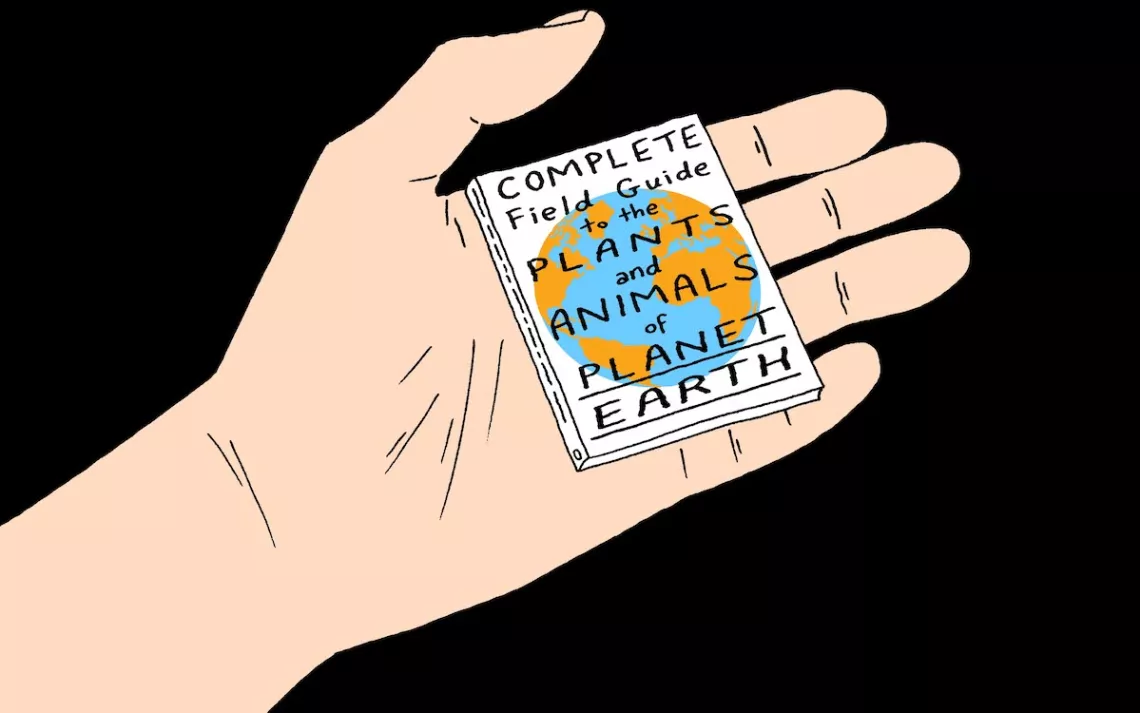ICYMI: Extinction, Plague, and Conspiracy—But Blue Crabs Are Back
A weekly roundup for busy people

Illustration by Peter Arkle
Human activity threatens 1 million species of plants and animals with extinction.
Grass Valley, California, cancels its Earth Day celebration because QAnon conspiracy theorists thought it would be targeted by jihadists.
After a 50-year absence, the red-legged frog—Mark Twain’s “celebrated jumping frog”—is thriving again in Yosemite National Park.
Blue crabs rebound in Chesapeake Bay, following years of strict harvesting restrictions.
The steelhead come back to California’s Carmel River after a dam is removed.
After eating raw marmot, a Mongolian couple die of the plague.
Flooding on the Mississippi River at Davenport, Iowa, unofficially surpasses the record level set in the Great Flood of 1993.
A tourist at Hawaii Volcanoes National Park falls into Kilauea’s caldera and survives.
Atmospheric CO2, as measured at the summit of Hawaii’s Mauna Loa, flirts with 415 ppm.
Interior Secretary David Bernhardt says that he isn’t doing anything about climate change because Congress hasn’t told him to.
Secretary of State Mike Pompeo celebrates the effect that climate change might have on international commerce: “Steady reductions in sea ice are opening new passageways and new opportunities for trade.”
The United States blocks mention of climate change in a joint statement by the eight nations of the Arctic Council.
In 2015, the United States spent more in direct and indirect subsidies for fossil fuels ($649 billion) than it did on the military ($599 billion).
The federal government sues 23 coal companies owned by West Virginia governor Jim Justice for nonpayment of $4.7 million in fines for violations of mine safety laws.
A federal court finds that coal magnate Bob Murray attempted to intimidate his workers and interfere with their right to report unsafe working conditions. Murray is ordered to personally admit to his illegal actions at five West Virginia mines.
Officials at the EPA disregarded the advice of their own scientists and lawyers when they failed to ban asbestos.
A California couple is fined nearly $600,000 for uprooting and killing a 180-year-old oak tree near their Sonoma County ranch.
Share prices in the initial public offering for Beyond Meat, a maker of vegan meatlike products, rise 163 percent, the largest increase for an IPO since 2008.
Starting in 2030, Amsterdam will ban cars and other vehicles powered by gasoline and diesel.
The United States now has 2 million solar installations, generating enough electricity to power 12 million homes.
General Motors sells its iconic Lordstown, Ohio, assembly plant to electric-truck maker Workhorse.
California governor Gavin Newsom bans the neurotoxic pesticide chlorpyrifos, a chemical the Trump administration has defended.
Three and a half years after the Shasta Pack—the first wolf pack in California in nearly a century—was identified, it has disappeared.
The National Marine Fisheries Service makes it easier for the agency’s Pinniped-Fishery Interaction Task Force to kill sea lions that eat endangered salmon congregating at the fish ladder at Bonneville Dam on the Columbia River.
Tourism authorities in Tanzania want to build a cable car to the top of Mount Kilimanjaro.
The American Psychological Association creates a 69-page guide to help mental health professionals assist people suffering from climate anxiety.
 The Magazine of The Sierra Club
The Magazine of The Sierra Club



